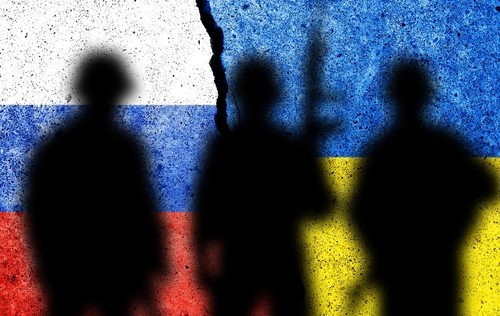Significant concerns regarding geopolitical stability and its wider ramifications for international relations are brought up by Russia’s calculated reaction to Ukraine’s bold incursions. Code-named “Spider’s Web,” Ukraine’s daring airstrike operation has largely destroyed Russia’s fleet of strategic bombers. This development draws attention to weaknesses and the dynamic character of contemporary warfare.
Ukraine’s Bold Drone Strike
On June 1, Ukraine launched Operation “Spider’s Web,” an innovative drone swarm that targeted key Russian airbases. The operation damaged or destroyed 34% of Russia’s strategic bomber fleet. The 117 drones deployed from commercial trucks effectively targeted the Dyagilevo, Ivanovo, Olenya, and Belaya airbases. The attack served as a partial retaliation for previous strikes on Ukrainian infrastructure.
This is Grok analysis of one of my X threads is a good example of why farming out your thinking/analysis to AI is a really bad idea.
Grok accurately reflects a highly flawed US National Security consensus about small drones.😱
A Grok vs Drone Reality🧵https://t.co/nZIDEyA9nu
— Trent Telenko (@TrentTelenko) May 6, 2025
Russia’s muted response to these unprecedented attacks has been noteworthy. Russian state media coverage has been limited and restrained despite the significant loss. Deputy Foreign Minister Ryabkov has urged Western nations to curtail further escalation to prevent exacerbating tensions. The situation remains dynamically unstable, with no immediate shift in Russia’s nuclear posture.
Strategic Implications of the Strike
The impact of losing 11 or more bombers is profound for Russia’s strategic capabilities. This crisis exposes vulnerabilities in large military operations to small, agile drone threats. The strike represents a shift in air warfare, showcasing the disruptive potential of low-cost drones and challenging conventional air superiority concepts. There is an increasing focus on enhancing counter-drone systems and improving military coordination. The United States faces similar challenges, with existing gaps in its homeland defense infrastructure against such drone threats.
Well-known alcoholic and Deputy Chairman of the Russian Security Council, Dmitry Medvedev, who regularly threatens to nuke Ukraine and attack Europe, calls today’s large-scale drone attack against airbases in Russia a “terrorist act” by Ukraine, while claiming for the hundredth… pic.twitter.com/HMyQY9rdyr
— OSINTdefender (@sentdefender) June 1, 2025
The surge of asymmetric warfare tactics by air, spotlighted by Ukraine’s strategic maneuver, is reshaping military strategy and defense planning. It emphasizes the urgent need for nations to redefine military preparedness and anticipate emerging technological threats. As nations adjust to these new paradigms, the attack underscores an ongoing revolution often unseen in traditional warfare concepts.
Consequences on Geopolitical Stability
The geopolitical ramifications of these developments remain uncertain, yet deeply concerning. Russia’s strategic flexibility in this scenario indicates possible calculated retaliations or strategic maneuvers. It highlights the inherent unpredictability under current international diplomatic tensions. President Putin’s dialogue with former President Trump outlined the crucial need to defend Russia’s security interests, while global observers remain vigilant about unfolding dynamics.
Ukraine’s operation has starkly challenged traditional air superiority concepts, illustrating a transformative period in military warfare. These events compel nations to re-evaluate existing doctrines and strategic planning. The unfolding situation remains tense, with potential far-reaching implications for regional geopolitical stability.
Sources:
https://www.newsmax.com/newsfront/russia-response-ukraine/2025/06/05/id/1213707

